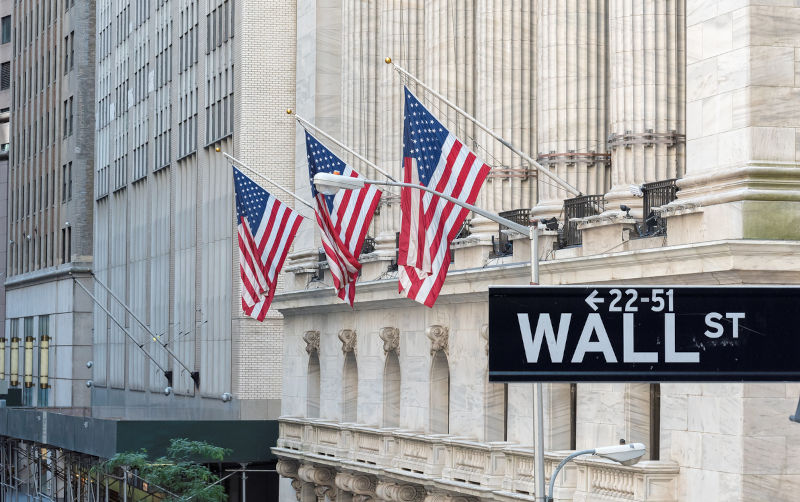Capitalism with a conscience? Social stock exchanges could be the answer
August 3, 2023
Instead of serving markets, we should have markets serving our needs for a fairer, greener world. Enter social stock exchanges the institutionalisation of doing good.
The US Federal Reserve has raised interest rates again, but the mood in the stock markets suggests that, after a mild recession, it may be time again for wine and roses. Stock markets globally are at their least volatile in a while like the calm before a storm.
Meanwhile, scientists are warning about El Nino effectsEl Nino effectsand a possible disruption to the Gulf Stream, which basically takes the warm waters off Mexico up the East Coast of North America to the cooler waters of the Artic Northern Atlantic.
With global warming melting the Greenland ice caps and carbon-rich permafrost, scientists think the Gulf Stream could collapse, with devastating impact on global weather and food production. If food output is disrupted, on top of the reduction in grain and fertiliser exports due to the Ukraine war, expect inflation to roar back, especially for emerging markets.
Financial markets do not seem to factor long-term climate issues into short-term price considerations. This raises the question: who do the markets really serve?
Finance, of course, is a virtual human creation to serve the real economy. But after four decades of global financialisation, it seems the real economy is now serving financial interests. Markets are becoming more concentrated.
A recent study of US foreign accounts found that a big chunk of the multi-trillion-dollar offshore financial markets were held on behalf of a fractional minority the super-rich who seek to avoid taxation, and have secrecy and anonymity. The recent banking shakeout has also left big banks bigger than ever and the US equity run-up is being led by the Magnificent Seven tech stocks.
How should we reimagine the role of money and finance? Finance is the glue that links those who work for a living and those who rely on capital, which comprises natural capital such as land and resources, and human capital such as intellectual property rights. Across the world, the share of labour income in gross domestic product has noticeably fallen.
In the United States, wages as a share of GDP has dropped 64 per cent in 2001 to 59.7 per cent by 2019. In Malaysia, this has also fallen, from 35.5 per cent in 2017 to 32.4 per cent last year. This long-term trend of capital earning more of a share of global income has led to the current push for higher wages, which is threatening to produce a cost-push inflation.
After decades of quantitative easing and negative real interest rates, capital is being rewarded more handsomely than labour and those who can borrow money cheaply are effectively doing so at the expense of poor savers and the labour force majority.
But rising interest rates are beginning to restore the balance between labour and capital. Higher real interest rates will begin to squeeze asset bubbles, reduce speculation, and force business and consumers to be more efficient.
Japans small-sized firms struggle to offer higher pay to keep up with inflation
However, decades of financialisation have already increased short-term consumption through growing debt, resulting in excess consumption and a ruthless exploitation of natural capital. Climate warming,, created through excess consumption and carbon emissions, is natures revenge on human excess.
The Gulf Stream, which flows in a cycle throughout the Atlantic Ocean, reminds us that life moves circularly to restore balance. Warm water meets cool water and marine life thrives from that natural mixing. Similarly, finance cannot become more concentrated without huge social consequences.
Economists such as Thomas Piketty have delved into history to argue that inequality rises when returns on capital exceed output growth.
Before the Industrial Revolution, when land was the most important form of capital, abuses of land rights and farm labour caused the French people to rise against the monarchy and landed gentry.
Today, intellectual property is more highly valued than natural capital because it preserves the rights of the minority who control the technology. With technology increasingly concentrated in large tech platform companies, inequality has, again, tended to worsen.
Traditionally, income and wealth have been redistributed in two ways to reduce inequality, through higher taxation of the rich or charity. In Islamic finance, for example, there are the concepts ofzakat,the obligation to donate wealth annually to charitable causes, andwakaf, or charitable endowment.
In India, a social stock exchange has been launched to institutionalise donations to social enterprises. For the first time, a new financial infrastructure is being provided to help donors (individual or corporate) to fund qualified social enterprises to transparently and accountably deliver social impact.
Underprivileged class bearing the brunt of Hong Kongs rising inflation
The legal instrument is the trading of a zero-coupon, no-return financial instrument. The buyer or donor expects social impact rather than a financial return. Finance can serve not only profit-making enterprises, but also those that deliver social good.
Using this, we can institutionalisewakaf, because endowments in assets or claims on social enterprises can be achieved with accountability. Social enterprises will be audited to show that the funds they receive are ethical and used as promised in their filed documents, much as a listed companys prospectus.
The idea of a social stock exchange shows how technological and institutional innovations can reshape finance to serve corporate and individual social responsibilities in imaginative and creative ways.
Central banker Paul Volcker used to say the only useful banking innovation was the cash machine. Today, social stock exchanges could be the financial innovation that revolutionises the market in social entrepreneurship.
First published in the South China Morning Post July 29, 2023

